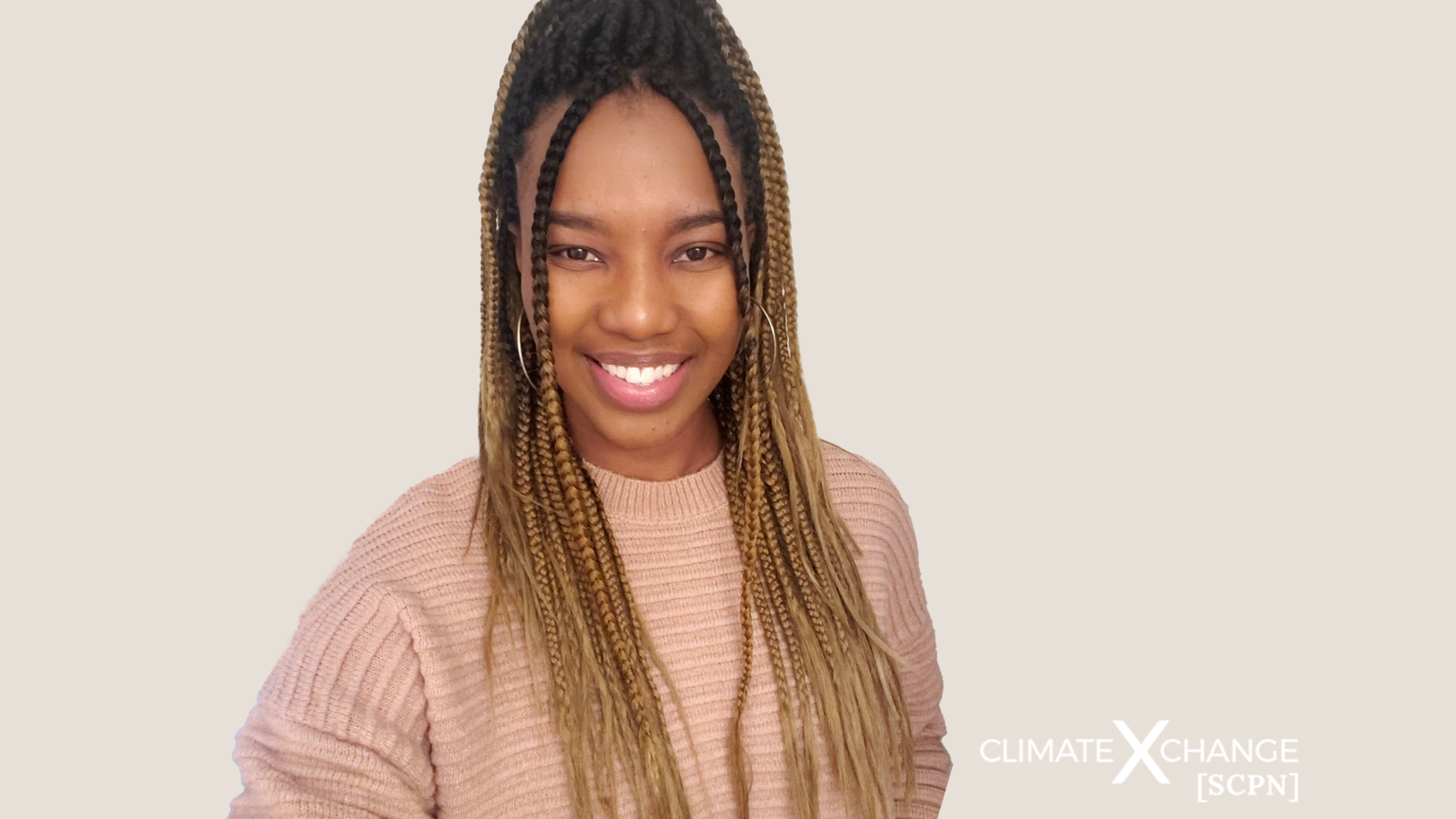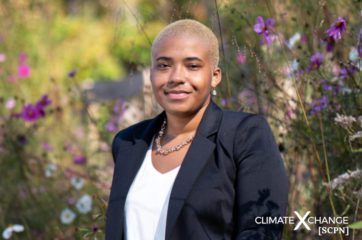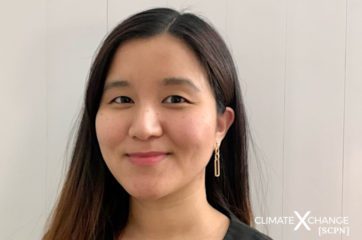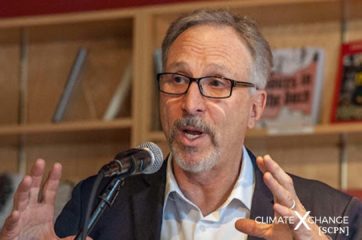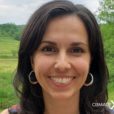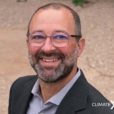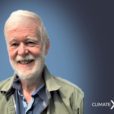All across the country, members of our State Climate Policy Network (SCPN) are fighting to make an impact on climate change in their communities. We have individuals in our Network from all 50 states, each experiencing climate change differently in their local areas and finding unique solutions to build resiliency efforts.
Jenille Scott is the Former New York State Field Organizer for Our Climate, an organization that focuses on supporting and empowering young people to advocate for equitable and science-based climate policies. She is an international student from Jamaica, studying various subjects across environmentalism, law, and social justice. Jenille found her passion in fighting for climate justice and empowering youth at a young age, when experiencing the impacts of the climate crisis in her home country.
Faiza Azam: Could you tell me about your background, where you’re from, and what drove you into climate work?
Jenille Scott: I am an international student from Jamaica. I just finished my Masters from Vermont Law School last year. I did my Masters in Environmental Law and Policy, and prior to that I went to Bryn Mawr College where I had majored in biology and minored in political science. I’ve always been interested in understanding the body, understanding science, and how it relates to climate change. I’ve been interested in what the science of climate change is, and making sure the policies that we are developing and advocating for are based on current climate science.
When I got interested in climate change, I was going to school in Costa Rica. I was in Costa Rica for two years, so I started out as being interested in local environmental issues and wanting to do environmental law because I wanted to be a lawyer at the time, but I changed my mind. I started finding ways to do environmental law and work in litigation, but while I was in school, I started learning more about climate change and a bigger aspect about the issue – how small island nations like Jamaica were significantly impacted, as well as how we’re funding climate action. That’s how I got involved in wanting to work on helping Jamaica’s adaptation policies, but then also making sure that, with an international context, other countries are taking the necessary mitigation strategies that they need. I know those are two different extremes but those are the two areas I am interested in more, so the focus of how small island countries can adapt to climate change.
Faiza Azam: That’s amazing. I can relate to that in so many ways because of the different ways these things can intersect. Did you experience any climate change issues that have been impacting Costa Rica?
Jenille Scott: Actually, no. Not in Costa Rica, at the time. The weather was really nice. There was nothing strange about the weather when I was living there. People who lived there probably say something different, but I was only there for two years, so during the two years, I did not notice anything out of the ordinary. But, it was nice to hear the things they were doing – Costa Rica is known for their greenery and their renewable energy. I think it was three years ago, they were running on just renewable energy for 140 days. They’re pretty well known for those actions.
Faiza Azam: Can you elaborate on the different climate disasters that you might’ve experienced, seen, or learned about in Jamaica?
Jenille Scott: I would say the biggest thing would be our hurricane seasons. Our hurricane season lasts basically six months out of the year, from June 1 to November 30. I think I experienced my first hurricane when I was ten, and that was terrifying for me. My mom was around when there was another hurricane from 1988, and when you talk to any Jamaican, they would say ‘Hurricane Gilbert, Hurricane Gilbert.’ She was telling me about the difference between Gilbert and Ivan. After Hurricane Ivan, which was in 2005, the weather became progressively worse. You would see storms come frequently within six months, sometimes you have a hurricane, a tropical storm, and a tropical depression all in one season. Sometimes it was really, really hot. It became a system, which we follow with the routinely arriving hurricanes.
So we’ve got hurricanes, and they come in more intensely. There’s a lot more wind and people are losing their roofs. I remember a church close by my house that had a little dip away from the road, and after a storm, the water was covering the church all the way up to the top, and that happened pretty often. Unfortunately, certain areas are dumped up and people shouldn’t be living there. When the rain falls and people are supposed to move out, they have nowhere to go. So, those are extreme flooding issues in those communities. Between the storms and the heat, it’s gotten really hot over the last couple of years, but it’s not as humid as it is [in the United States]. The humidity here is disgusting and it is really, really hot in the United States.
Faiza Azam: That’s good to have strong experiences when it comes to being a climate activist, so I applaud you for being strong and fighting the good fight with us. What was your first experience in the climate space and, I think you answered it in the first few questions, but when was it when got into activism?
Jenille Scott: I don’t know how I would put it, but I’ve always been interested in climate change for a really long time. I think I started learning about climate change in 2012. My involvement with climate change hasn’t always been on the frontlines — as in rallies with people talking into megaphones — so that didn’t really make me feel like I was a climate activist. I was always the person in my class who was like ‘What about the impacts of communities globally?’ and ‘These climate disasters are things that are happening in small nation islands over time.’ I was always educating people in my class and my professors would say ‘Yeah! Jenille bringing a new perspective!’ That’s really what it used to be and then my interest switched even more to legislative advocacy. My actions changed over time from a quiet version of talking to friends, in classes, or with family to shifting towards more legislative advocacy.
Faiza Azam: Have you tried more scientific advocacy like experimenting with soil or environmental engineering?
Jenille Scott: I would learn about it, but I was always interested in the advocacy aspect rather than the scientific aspect.
Faiza Azam: There are all kinds of activists, and we definitely need both scientists and advocates. Tell me about where you work now and what you’d like to accomplish by the end of your term working there.
Jenille Scott: I am the New York Field Organizer with Our Climate. Our Climate works to mobilize youth leaders to advocate for science based and equitable policies. I started in October of last year, so a lot of things were already in play for Our Climate. To be honest, I wanted to change a lot of the work I was doing with Fellows as a Field Organizer. I was talking with Fellows about the different things they wanted to see in the program and what they wished they’d gotten out of the program more. That’s something I hope to accomplish before I leave — taking things that were said over the last couple of months and restructuring the program in a way that allows them to diversify their skillset.
We were hoping that the pandemic would come to an end, but everything is a hot mess. We’re trying to do some more in-person things, but connecting in-person is probably not going to happen in the fall either. We’re trying to figure out how to make more virtual connections and allow for virtual advocacy, as well as diversifying the program to include different options. Not everyone always feels comfortable lobbying, and that’s a big part of Our Climate. We meet with legislators, but not everyone is comfortable with that. Making sure people have options is important so that they can feel comfortable advocating in a way that feels best to them and not just what we’re saying might work best from our end. We focus on legislative advocacy, but there are a lot of ways to do that. I want to also add that I’m hoping to make sure I’m connecting with other youth groups in New York because there are a lot of amazing people who are doing a lot of amazing work, whether it’s through their organizations or in their communities. It’d be really good to connect with those youth that are doing that work and seeing different perspectives to see what other people are doing in their network.
Faiza Azam: What is your favorite part about working at Our Climate and in the climate space in general?
Jenille Scott: I have two favorite parts about working with Our Climate. One would be the teams – we’re a small team, but our organization’s culture is very chill and laid back. Even though everyone is from different parts of the U.S., it’s as if we’ve known each other for a while. When we have our team meetings, everyone is friendly and we have a fun time. Everyone is also really helpful in sharing their experiences and issues in their state, and it’s really helpful to figure out how I should structure my own plans or what can I adapt to working in my state.
The second thing is working with the youth leaders, because I’ve never officially worked with youth leaders in the climate space. I’ve done work with youth through campus work, but this is the first time I was able to do that with climate, which is one of the reasons why I applied to work for Our Climate. It’s been really good to talk to everyone here. There are different opinions and I’ve been able to see people grow in a lot of different ways from watching everyone share their experiences with each other and get a little more comfortable overtime. It’s also helpful for me to learn a lot of things, like the way youth see things and why it’s important to have youth voices, and how different our perspectives and opinions are. Those are the two things I would say I like most about working with Our Climate.
In the climate space in general, when I started, it was really exciting to learn everything that was happening in different countries, and I don’t mean excited like ‘Oh my gosh, bad things are happening! It’s so great to learn that bad things are happening,’ but just learning more about what’s happening in the world. It really is a global issue and everyone’s being impacted. It’s important to understand why our actions need to be reflective of that. [We need to make] sure we’re considering the needs of everyone and not just ourselves as individuals or individual countries but instead what’s best for everyone globally. That was what I was interested in most in the climate space. What I love most is connecting with other people. But now, I don’t know what I want in the climate space anymore, because it feels like a never ending battle of just not getting anywhere. It’s like we’re working and training youth to advocate against the impacts that they’re living with. We’re advocating for policies to deal with individual impact and mitigation strategies, but these are things people are living in real life. It’s disheartening when you meet with a legislator, someone you elected because you think they’re going to do what’s best for you, and having to continuously remind them of all the things that are happening and why it’s important for them to take the necessary actions. I started learning about climate change in 2012, and I can’t believe that we are still having the same conversation as we did ten years ago. And, while we are here not doing anything or running around in circles, that doesn’t stop the climate from changing. I’ve been feeling a little less happy about being in the climate space. I still love the work but just not seeing the results is a little bit disheartening
Faiza Azam: I agree, and if it makes you feel better — and I hope it does — even though the fight is never ending, that’s what the civil rights warriors felt in the past when fighting for justice, and they still keep going and going. It helps me move forward as well.
Jenille Scott: It’s a marathon, not a sprint. I think something that I do like now is that people are focusing a lot more on self-care and mental health, and it’s becoming a bigger portion of the conversation. You can’t advocate this hard and not take care of yourself. It takes so much for us to do the work that we do and we’re not just dealing with climate change — we’re dealing with so many things that are going on in our lives, and we’re dealing with so many other things that are all intersecting. It’s really important to be taking care of ourselves. I think it is a really important conversation.
Faiza Azam: I love the era of interaction that our generation is seeing because we are really focusing on the aspect of winning on all counts, and we are the generation that are really feeling the blow of this climate crisis. Do you plan to pursue the work you’re doing at Our Climate in your next jobs or in the future? Or would you want a different job in the legislative body or with youth?
Jenille Scott: I think it would be incorporated as a mix. I think because of COVID-19, I still haven’t been able to experience the advocacy and rallies being in person. So, I would like to work with youth leaders in some capacity, and I would still love to work with legislative advocacy because that’s my jam!
Faiza Azam: What do you do for fun when you’re not doing climate work?
Jenille Scott: Ha! What do I do for fun? I usually read a lot. I’ve gotten really bad at my reading. I actually just bought Dr. Ayana Elizabeth Johnson’s book All We Can Save. I watch TV, like a normal person, and I like to cook and try new foods, and when we aren’t in a pandemic, traveling.
Faiza Azam: Well, thank you, Jenille, for letting me do this spotlight on you. It’s been an amazing time working with you at Our Climate and learning about your point of view and experiences!

